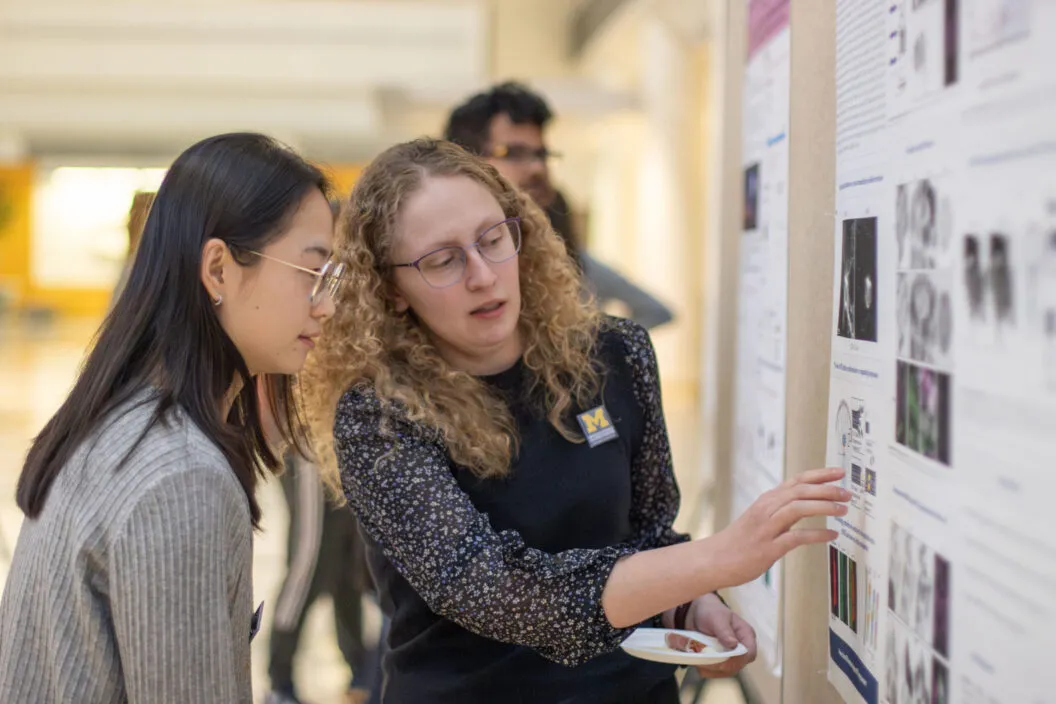What is meant by “Unit”?
The “Unit” is one of the following participating entities: LSA, LSI, Medical
School (EBS), Medical School (Clinical), or School of Dentistry. Note: “Unit” is
the entity that a department belongs to.
What units are within the scope of this program?
- Michigan Medicine basic science (EBS) departments, clinical departments and
affiliated centers - Life Sciences Institute (LSI)
- College of Literature, Science and the Arts (LSA)
- School of Dentistry
How is a fellow funded?
A Michigan Pioneer fellow will receive an annual stipend corresponding to 120% of the NIH pay scale for postdoctoral fellows. The breakdown of sources of compensation is as follows:
- The mentor(s) pays 75% of the stipend and benefits.
- The unit (LSA, LSI, Medical School (EBS), Medical School (Clinical), or School of Dentistry) pays 25% of the stipend and benefits.
- In addition, a sum of $15,000, provided by the unit, will be placed under the control of the fellow to cover expenses related to attendance of scientific meetings, research endeavors, and training and professional development.
What is the length of the fellowship?
Three years (fellows are appointed full-time for a 12-month period, with the expectation that the appointment will be renewed annually for three years.)
Are fellows required to be in the Pioneer Fellows program for a full three years, or can this length be adjusted based on fellowship duration?
Considering the extensive mentoring aspects of the program, a three-year commitment is required to be eligible.
Is remote fellowship allowed?
No, applicants must be available to be in lab onsite in Ann Arbor during the fellowship (not a virtual program.)
What are expected candidate qualifications?
- Applicants must be less than one year post-degree (Ph.D., M.D./Ph.D., or Pharm.D./Ph.D.) at the time of application, or enrolled as students in the final year of their doctoral degree program. Degree confirmation must be provided prior to the start of the fellowship. For applicants who have entered clinical training programs (including those with M.D., D.O., and Pharm.D. degrees), they must be less than one year past their post-graduate clinical training end date at the time of application.
- Applicants currently in their first year of postdoctoral research in a U-M laboratory are eligible; however, individuals who seek to continue training in the laboratory environment in which they have conducted doctoral thesis research are not eligible.
Is the program open to international applicants?
Yes, the program is open to international applicants. There is no citizenship requirement for the applicants. Accepted Fellows will need to obtain the appropriate visa before joining the program. If for any reason a visa is not granted, the acceptance will be voided.
Is the program open to U-M internal candidates?
Yes, applicants currently in their first year of postdoctoral research in a U-M laboratory are eligible; however, individuals who seek to continue training in the laboratory environment in which they have conducted doctoral thesis research are not eligible.
Are Letters of Recommendation (LOR) also due by the application deadline? Would they have to submit via Interfolio?
Yes, LORs are also due by the application deadline. Letters are uploaded directly through Interfolio. Once the applicant finalizes their application, an email will be sent to the letter writer with a link to upload the letter.
How firm is the start date?
To develop a true Fellows cohort each year, and to allow synchronized programmatic activities and skill building for each cohort, the program has a target start date window of November 1. Some exceptions may be possible, in certain circumstances.
Questions for mentors:
Who is eligible to be a mentor?
Faculty affiliated with Michigan Medicine, LSI, LSA, or Dentistry are eligible to be mentors in the program. View “Explore Potential Mentors at U-M” on our Apply page.
What does the mentor pay for?
A Michigan Pioneer fellow will receive an annual stipend corresponding to 120% of the NIH pay scale for postdoctoral fellows. The breakdown of sources of compensation is as follows:
- The mentor(s) pays 75% of the stipend and benefits.
- The unit (LSA, LSI, Medical School (EBS), Medical School (Clinical), or School of Dentistry) pays 25% of the stipend and benefits.
- In addition, a sum of $15,000, provided by the unit, will be placed under the control of the fellow to cover expenses related to attendance of scientific meetings, research endeavors, and
training and professional development.

